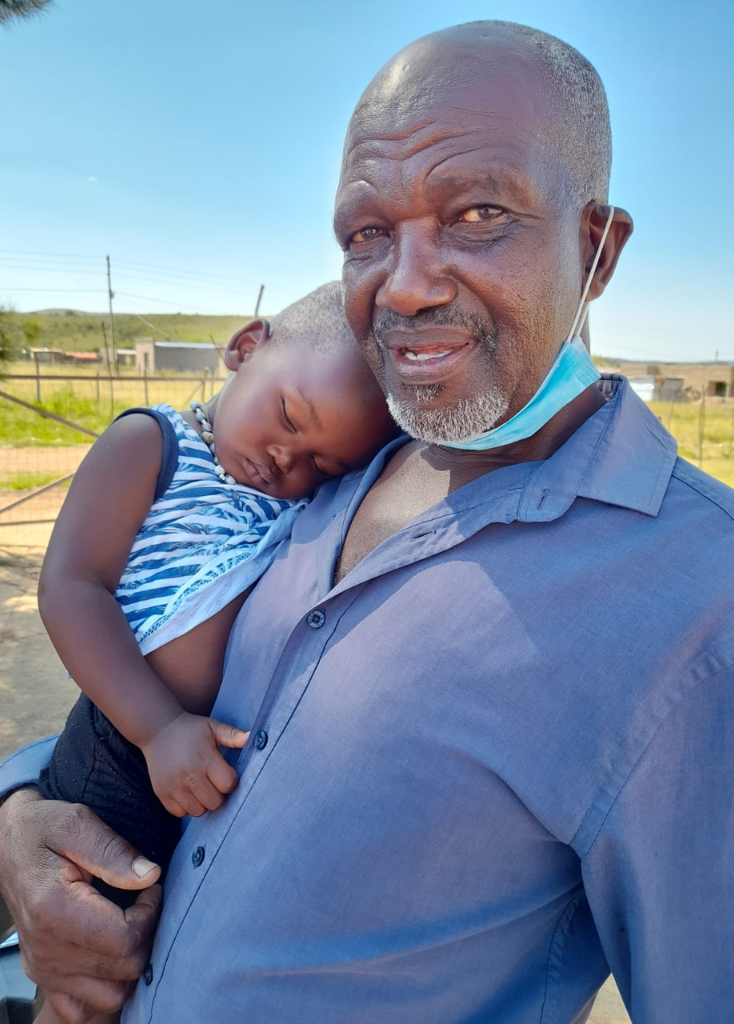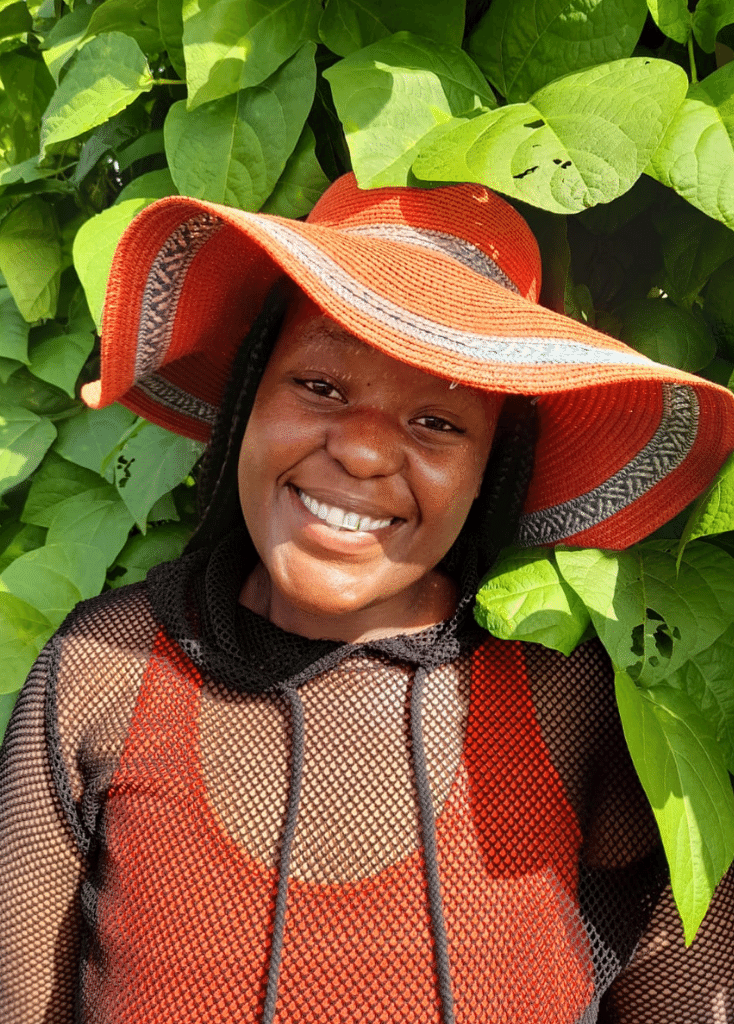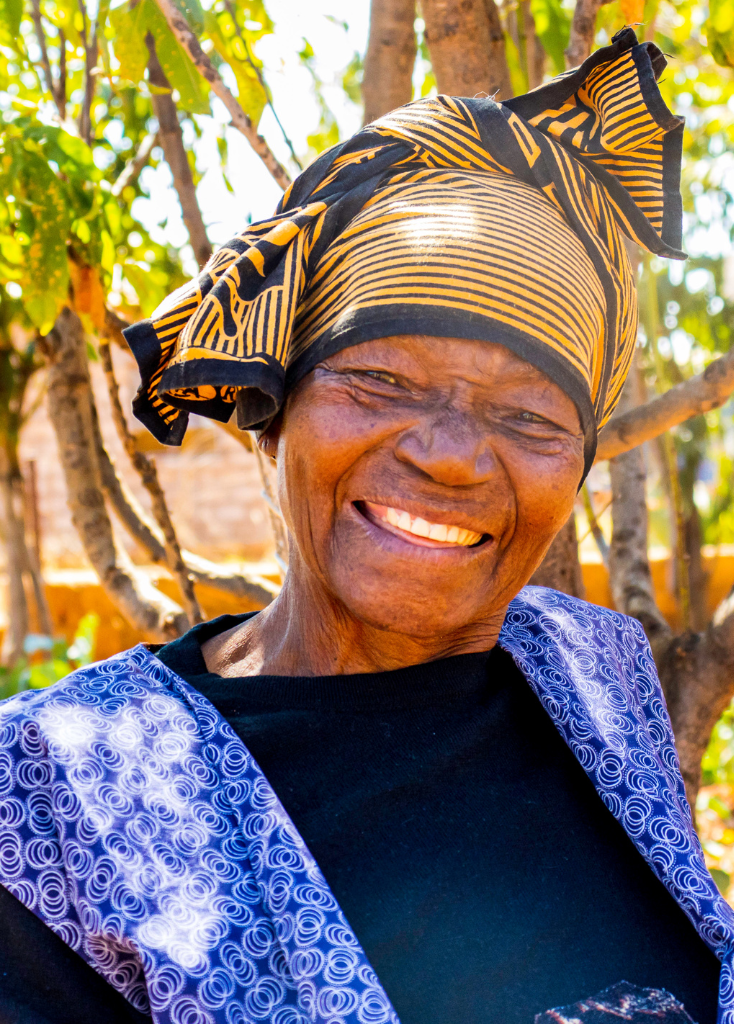
BBL PARTICIPANT: Johannes Jiane, Langkloof, Mpumalanga Province
In a Nutshell
Johannes Jiane lives in Langkloof, Mpumalanga. Through SocioTech’s Broad-Based Livelihoods (BBL) programme he has added to his horticulture knowledge. He grows to feed his family, and also sells to his neighbours.
He says…
This garden serves two purposes. I grow for my family and also to sell. Because of the good quality soil and the irrigation system that I learnt through the SocioTech training, it is now full of all the colours that the Food Robot talks about; mielies, onions, tomatoes, sweet potatoes, green peppers, red peppers, beans, peas, pumpkins, lucerne for the goats, you name it, we have it.
I grow peanuts that I roast and sell. I put them into those little atchar tubs and sell each tub for R5. I even grow kgapa gourds – when you hollow them out and dry them, they can be used to make beer or ferment milk into amasi. Those you can sell for R80 each. They make great tasting amasi – it is so much nicer if you make it in a kgapa. Making it in a glass jar doesn’t come close to the same taste. I think something about that natural container makes for the great flavour. I don’t like to waste anything, so one of my favourite recipes is uphutu nohloya where you use the clear whey (hloya) that comes out when you make amasi as the cooking liquid for the phutu. Ooh, then it comes so nice and sour.
Those kgapa are also really good for preparing butter. You separate out the whey and then shake and shake the curds inside that gourd until they thicken up and become a delicious butter. That on homemade bread is the best.
Because of all the vegetables we sold in December, my family had such a nice Christmas. We bought groceries. My wife cooked such delicious food – the tomato gravy she made using the tomatoes and onions from our garden was wonderful. The sweet potatoes were so sweet, the cucumber salads were so crisp and fresh.
With some of the vegetable money, I bought my little grandson (his name is Philani but we call usually just call him ‘Baby’) this little plastic red chair that you see him sitting in today.
"You never know where simple lessons will take a child."
Baby is only three years old, but he is my helper. That is how it should be. Parents and grandparents should teach the young. When I was a boy, I got my first lessons in food production through helping my elders and I am still using a lot of those same techniques. I learnt how to plough with my grandfather. He had six oxen and at first it was my job to steer them. Now this little one, Baby, he is at home with Umkhulu and if he cries, I say to him: “Come, let’s go put water in the field” and after that he stops crying.
Baby is a lucky boy. We have already set aside three cows from our herd that are his cows. That is his savings. If he already has three when he is so young, imagine how many he will have by the time he finishes matric. Then when he wants to go to university, he will be able to do so. We go to the kraal, and I show him his cows. He knows them - although sometimes he forgets and says that all the cows in the herd are his cows.
You never know where simple lessons will take a child. A long time ago, when my son was in grade 4, I taught him how to cut hair. Now he owns a hair salon in Johannesburg.
Not all lessons can be taught so easily. Some lessons you have to learn the hard way. You see these goats here? Baby got bitten by one of them the other day. He was trying to feed it a mielie cob through the fence and his fingers got too close to the goat. He’s fine, but there will probably always be a little scar there. Now he always brings a stick with him when we come down to the goats…








